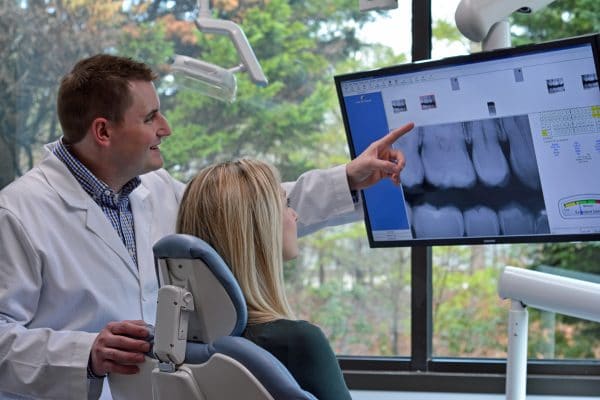How Long Does Dental Bonding Last?
Has your dentist recently suggested that dental bonding at cornerstone family dental in chapel hill treatment may be the answer to some of the small aesthetic issues you have with your smile? Dental bonding is a quick, cost-effective, and pain-free solution for chips, cracks, and gaps between teeth. Before you agree to dental bonding treatment, you may be interested in learning more about how the procedure works and what results you can expect. Below are more details on dental bonding and how long can you expect the treatment to last.
What Is Dental Bonding?
Dental bonding is a nonsurgical procedure where a material or adhesive is applied directly to teeth. There are two common kinds of dental bonding treatment:
- Direct composite bonding is when a tooth-colored composite material is applied to the teeth and sculpted to improve their appearance. A laser or light is then used to harden the composite material.
- Adhesive bonding is when a bonding adhesive, or etchant, is used to attach material to the teeth. Adhesive bonding is used to securely attach veneers, bridges, and crowns.
Durability of Dental Bonding
While the expected durability will vary based on the type of procedure and the materials used, the average dental bonding treatment results should last for up to 10 years. In general, direct composite bonding will not last as long as veneers that are secured with adhesive bonding. Regardless of which type of bonding your dentist recommends, there are some ways to help ensure the bonding lasts:
- Make a commitment to taking care of your teeth.
- Avoid any risks of damaging the bonding composite. This includes avoiding chewing hard foods, such as candy and ice cubes and avoiding smoking tobacco and drinking wine, tea, and coffee especially the first week after the treatment as these things can stain the new bonding. It may be worth considering permanently minimizing these habits if the bonding is on the front teeth.
- Commit to daily brushing and flossing to keep all of your teeth healthy. Although, it is important to be aware that flossing can cause composite bonding to chip if the edge of the bonding is caught.
After the Dental Bonding Treatment
Because dental bonding is such a quick and pain free treatment, after the treatment is complete, you may forget that any treatment occurred at all. After the treatment your dentist should discuss with you the steps you can take to make your treatment results last. Immediately after the treatment, is important to exercise caution. Avoid any habits that could potentially damage the bonding, such as opening packaging with teeth, chewing on pen caps, or biting your fingernails. Additionally, immediately after the treatment, the bonding composite is more susceptible to staining. Coffee, tobacco products, and tea should be avoided in the days right after the bonding treatment. In general, you can expect your new bonding treatment results to be durable and to last for years, but making a commitment to avoiding habits and to practicing good oral health will help the treatment results last even longer.
More on Dental Bonding : Fix Gaps Between Teeth With Dental Bonding





High-Quality Dental Care
At Cornerstone Family Dentistry in Chapel Hill, all our services are performed with the patient in mind. We want you to feel comfortable in the dental chair, confident in our work, and most importantly, we want you to fall in love with your smile again. If you would like to schedule an appointment or if you have any questions about cosmetic procedures that we offer, please contact us at (919) 595-1010.
